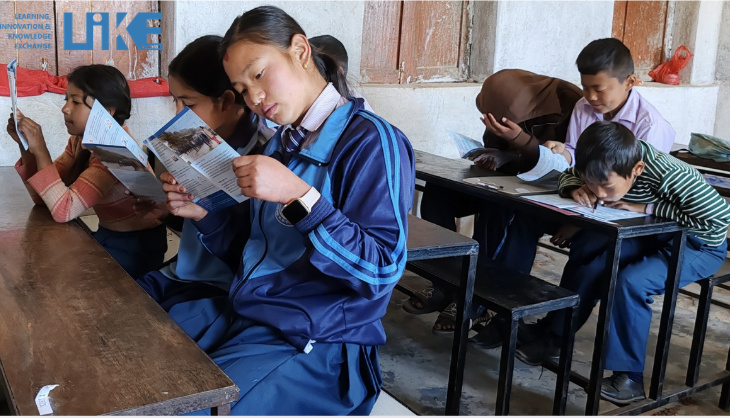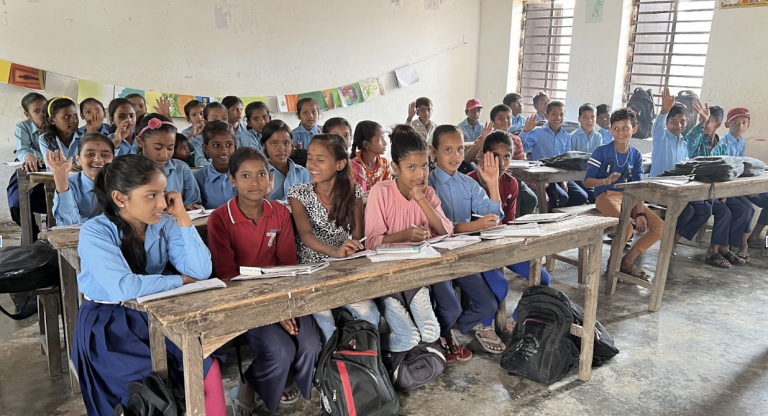Author: Situ Shrestha
Project Issues and Context:
The intervention initiatives and their analysis as a case study are based on the contextual reality that parents and community members are unaware of the Parent Teacher Association (PTA) and School Management Committee (SMC) roles and responsibilities for initiating and providing platforms for partnerships, sustained interactions, and collaborations between parents and teachers, which are required for the comprehensive development of an effective school system.
In Durga Bhagwati Rural Municipality, Rautahat District, parents and community members have not yet recognized the true value and utility of education for their children, including their voice and perceptions towards their school education system, and their educational rights as children according to the constitution of Nepal. Furthermore, due to economic difficulties, social barriers, and cultural barriers, children in this rural municipality are kept at home for household chores rather than attending school.
More importantly, these are the factors that will eventually contribute to Rautahat’s high rate of out-of-school children and dropout risk. Similarly, it has been discovered that teachers do not effectively collaborate, interact, or support parents on a variety of education-related issues and concerns they have about the school system as well as their own children’s learning outcomes.
Project Research Coverage:
The primary goal of intervention initiatives and their case analysis is to investigate different approaches that are necessary for addressing issues and conflicts between parents and teachers regarding school management, education, and child rights. In addition, the project-based case study also evaluates efforts that are being initiated to re-enroll out-of-school children, increase the retention rate of children at risk of dropping out, and examines the impact of awareness campaigns in five wards of Rautahat District’s Durga Bhagwati Rural Municipality.
Interventions:
The intervention involved the utilization of action groups (community members) for creating awareness in their respective communities through campaigns about the importance of education, the home learning environment, and school functioning. The intervention also included how public schools and teacher associations can be used to exchange decisions and suggestions, create opportunities, and promote overall student and school development through inclusive and collaborative initiatives between teachers, parents, and the local community. The main purpose of intervention programs here was to make parents aware of the importance of their involvement in planning potential solutions to specific challenges that their community faces in terms of education and school functionality.
Anticipated outcome:
This case study discovered that the initiated intervention project raised awareness among parents, community members, teachers, and municipal officials about the PTA and SMC’s existing policies and legal provisions, as well as the importance of education for both their children and community. The project mainly engaged the parents in five wards of Duragbhagwati Rural Municipality of those children who are studying in community schools with capacity-building training, information sharing, and campaigning about the importance of education.
In comparison to before and after the project’s implementation, parents and community members are now aware of the schedules of their children’s school due to the academic calendar, where they can mark and know the number of days to school, exam time, and a public holiday, which has observably improved the children’s attendance. Likewise, due to constant monitoring by parents and members of action groups, the quality and standard of the schools’ midday meal program have improved.
In addition, the complaint mechanism in these schools has improved as parents visit the schools on a regular basis to check on their children’s performance and school functionality. More importantly, this project anticipates that these advancements will be sustained as parents and community members become more aware of their roles and responsibilities in improving the effectiveness, inclusiveness, and quality of their community’s school system.



